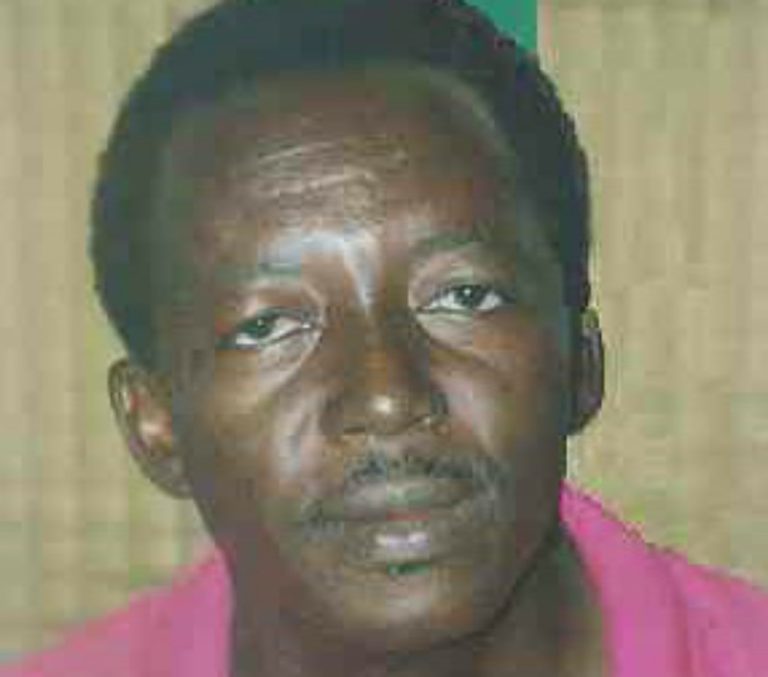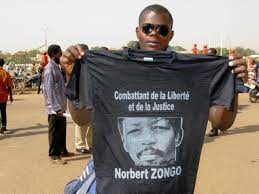The beginning of this year saw media stakeholders in Africa launch an online platform that was solely dedicated to the safety of journalists. Christened the Safety of Journalists in Africa, the platform which was launched on 29 January 2021, aims to develop early warning mechanisms, improve the protection of journalists, address threats and violence against them, and enhance response capacity within the continent.
Speaking during the launch of the platform, Chairperson of the African Editors Forum, Jovial Rantao said the development of the platform was driven by the desire to have a totally free media in Africa.
Some of the immediate actions after the launch will include organizing the capacity building of regional media networks and civil society organizations participating in this initiative.
The focus areas will include monitoring, verifying and reporting on violations of media freedom. Raising awareness on the Declaration on Principles of Freedom of Expression and Access to Information in Africa will also be prioritised and cooperative mechanisms to keep track of attacks against journalists in Africa, and support reporting on attacks will be present on the platform for individuals to use.
The platform seems user-friendly enough with steps on how you can report any oppression as a media practitioner. What struck me most, however, is a category that read, ‘memorial wall for journalists. I took some time to go thought it and right there were journalists who had been immortalized which works to remind people of the seriousness of the fight and just how dangerous it can get hence the need for a safe haven and bandying together. Below are a few examples;

- Dedya Hydara
Gambia’s Dedya Hydara was assassinated in cold blood on December 16 2004. This was just two days after the Gambian Parliament passed two new media laws that were aimed at silencing the media. The laws were: The Newspaper (Amendment) Bill, mandating expensive operating licenses, and the use of title deeds of landed property as guarantee as well as The Criminal Code (Amendment) Bill criminalized defamation and sedition.
Being a fierce defender of media freedom and also an astute journalist, Hydara lashed out at the government accusing it of attempting to muzzle the media and silence critics. He vowed to go to court but this would not happen as he was shot thrice on December 16, 2004while driving home with his members of staff.
According to the memorial by Ndey Tapha Sosseh and Marie Pierre Hydara,
the news of Hydaras’ death was met with shock, pain and trauma for his family, members of staff and the public as well as the Gambia Press Union, numerous media rights groups, The African Editors Forum, West African Journalists Association, International Federation of Journalists, Article 19, Committee to Protect Journalists International PEN, and human rights NGOs Amnesty International, International Federation for Human Rights, Front Line Defenders condemned the assassination and asked for investigations.
Deydas journalism career started as presenter in Radio Syd in the early 1970’s. In 1974, he became a correspondent of Agence France Press then later Reporters without Borders. In 1988, Deyda left the radio to set up a printing press company. Feeling that his journalistic career needed a bigger challenge, in 1991 Deyda Hydara co-founded The Point with his friends Pap Saine and Babucarr Gaye who eventually resigned. Pap Saine is still managing director of the paper:
Three members of the Gambia National Army Omar A Jallow, Malick Jatta, and Alieu Jeng would later come forth at the Truth justice and reconciliation commission and confirm participating in Operation Magic Pen; the pursuit, trailing and shooting of Deyda Hydara. The trio testified that they acted under the instructions of the Commander of the Patrol Team the late Tumbul Tamba, who was said to have taken instructions from the then head of state, President Yahya Jammeh. After the incident, members of the hit squad who participated in the operation all proceeded to the Kanilai residence of President Jammeh and received an envelope of US Dollars as a token of appreciation from President Jammeh.
This was closure for the family and journalists who had persistently asked for investigations but were harassed, detained, jailed, and some exiled.
Hydara is survived by a wife, Maria, and five children
Nobert Zongo
Nobert Zongo was a passionate crusader of justice, freedom, equality for all before the law, human rights and good governance. He lived and breathed the above words which are also immortalized in his writing. The celebrated journalist was totally against dictatorship. Unlike many journalists who only start practicing journalism after school, Zongo started his journey as a journalist when he was only in the 6th grade at the Cours Normal in Koudougou, where he created his first newspaper La Voix du Cours Normal in 1964.
Some of his writings offended authorities who would later send him out of school and declare he was not allowed in any secondary school as well. After a checkered education complete with many struggles he got a scholarship for the School of Journalism of Yaoundé in Cameroon in 1984. In 1986, his diploma in hand, he returned home and joined the editorial staff of the state daily Sidwaya and then the weekly Carrefour Africaine (also state media). He also collaborated with private media such as Le Journal du Jeudi and La Clef. His critically important articles published in these media annoyed Blaise Compaoré who decided to assign him to Banfora, in the province of Comoé, located more than 440 km from Ouagadougou.
This did not go well with Zongo who saw this as a sanction to silence him so he resigned. He then resigned from the civil service and created the weekly L’Indépendant in June 1993. Specializing in investigations, L’Indépendant soon became the most widely read newspaper in the country. In his memorial of the journalist, Boureima Ouedraogo says it was more than a newspaper but a platform to fight for justice, the respect for human rights, freedom, and the rule of law.
Ouedraogo adds Norbert Zongo denounced the crimes committed by those in power at the time ranging from economic crimes (embezzlement of public funds, corruption, tender fraud, exploitation of mineral resources, etc.) to political crimes (assassination of opponents and of pupils and students who demonstrate against the authorities) to rigged elections and political deals,.
“Convinced that journalism alone is not enough to raise awareness among his people and bring them out of their torpor, Norbert Zongo organized public conferences in high schools and colleges, spoke during meetings of youth movements, trade unions, etc. More than a journalist, Norbert Zongo was an intellectual committed to the cause of the weakest, of his people, a fighter for freedom, for justice, and democracy. He also did not miss the opportunity of the rare TV shows or radio shows where he was invited to denounce the practices and political cultures of predation and corruption and call on his fellow citizens to be brave and to take their fate in their own hands,” said Boureima Ouedraogo
Norbert Zongo went on to become the country’s spokesman and a one-man army against the government, refusing to give up even when it was clear he was all alone. He was however sadly murdered on December 13, 1998. But his sacrifice awakened sleeping consciences.
Citizen mobilizations lit the flame and Rantao describes it as the kindling of which was the victorious popular insurrection against the predatory regime of Blaise Compaoré in October 2014. Norbert Zongo, just like Thomas Sankara, was a model for these millions of young people who took to the streets to chase Blaise Compaoré from power!
Zongo was a good man, he preferred to fight than the comfort of silence in the face of injustice in all its forms.. He is now elevated to the rank of national hero.

- Henry Nxumalo
Known as the father of investigative journalism, Henry Nxumalo who did not have the convenience of air-conditioned offices and ready data for analysis to churn out investigative pieces of nefarious activities in government earned the name rightfully.
From the hiring of prisoners to potato farmers in Bethal, their abuse through beatings and murder, leading to corpses being buried in the fields to serve as fertilizer, or Baas Erasmus in Koster who was known to beat and kill his recalcitrant workers, he lived his stories and was equally passionate about telling them. He also revealed the terrible prison conditions and practices in places such as Tauza where black men were made to parade naked every morning and evening for their behinds to be inspected for contraband things.
“He got himself hired in Bethal and his expose of the conditions on the farms led to the now famous national potato boycott. He escaped with barely minutes to spare from Erasmus’s farm and arrived at the railway station just in time before the train to Joburg left, arriving with just enough time to catch the deadline for the monthly magazine,” wrote Mathatha Tsedu and Lizeka Mda in their memorial of him.
Born in 1917, Nzumalo started the craft of journalism submitting stories to the Post which eventually hired him.
“He was intent on exploring the world and World War 2 saw him enlisting and sent abroad, during which time he managed to even visit London where he made contact with a number of well-known journalists and other intellectuals. Returning home after the war, the media landscape was virtually barren for the kind of journalism Nxumalo wanted to practice. This was to change when Drum came on the scene. Nxumalo became its first black journalist and its Assistant editor,” read another excerpt
At the magazine, he was dubbed Mr. Drum and his stories would make a cover page with bold announcements like Mr. Drum goes to Jail, etc.
SA History Online said: “Drum became the antithesis of the entire South African press of that time, and was eventually read all over Africa. It provided a racy and irreverent blend of humour, sentiment, fiction, sport, scandal, weighty commentaries on continental affairs by renowned thinkers and devastating exposés of labour abuses and political and systemic injustice.”
Nxumalo, the journalist who lived his stories was murdered at age 40 while investigating a backyard abortion racket, that never ended in justice. With his death was also the waning of lived investigations and Drum eventually folded. Later on, it was bought by the National Party supporting Naspers which according to the two writers has turned it into a rag with no relation to the legacy of Nxumalo.

